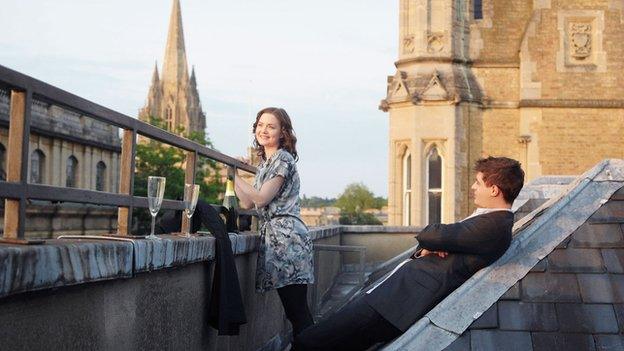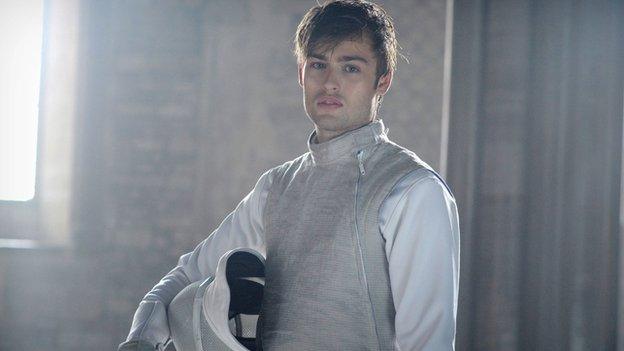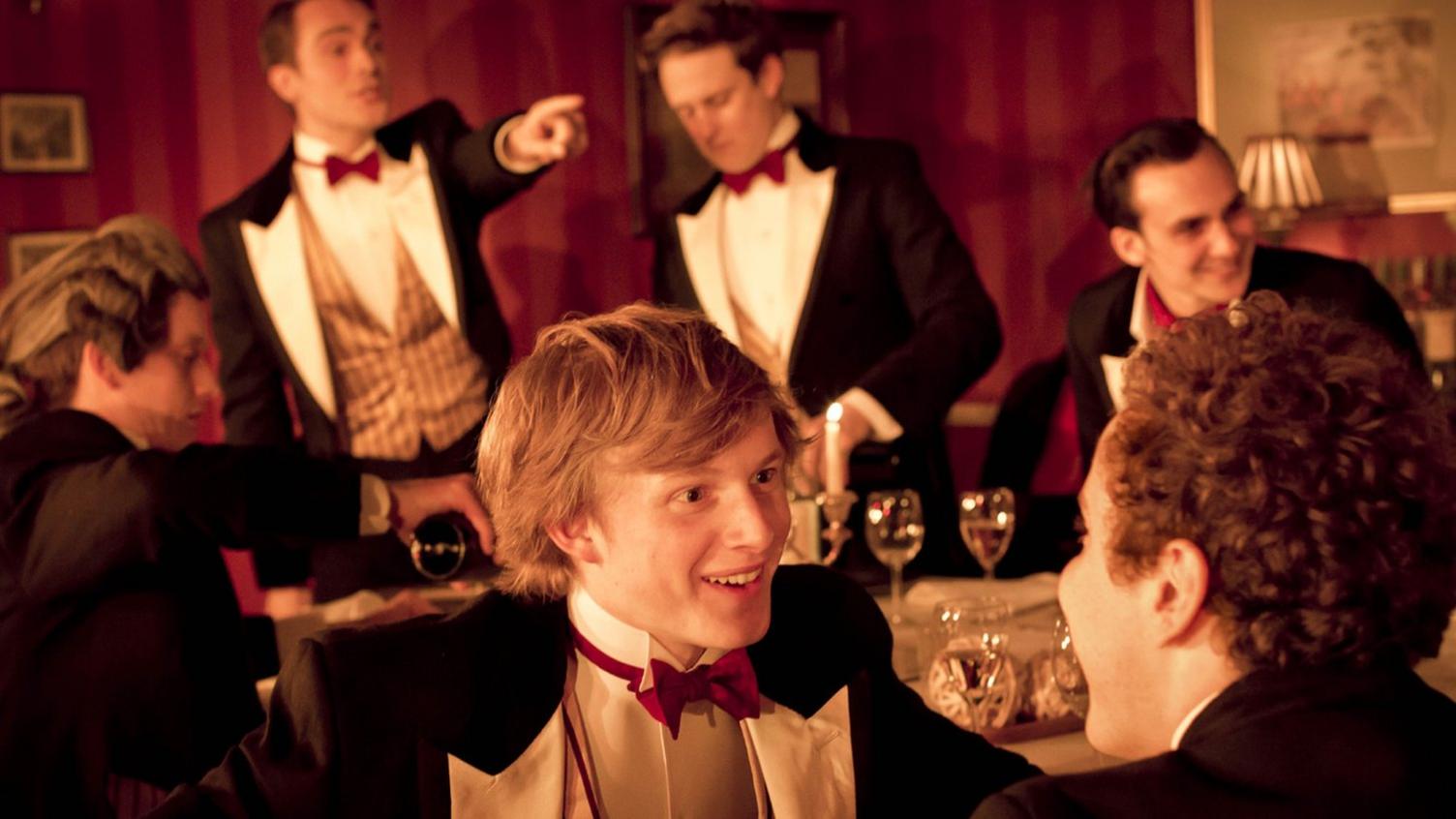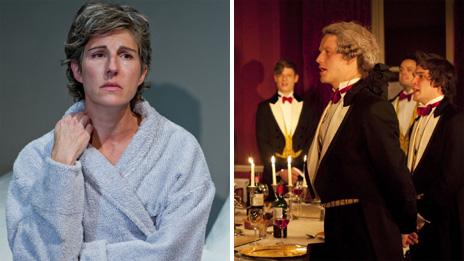The Riot Club: 'It's hard to believe these people actually exist'
- Published
Riot Club film writer Laura Wade says David Cameron and George Osborne 'might take issue with what the film suggests' but she hopes they may like the humour
Based on Laura Wade's hit stage play Posh, The Riot Club tells the story of 10 Oxford students who gather at a country pub for a night of debauchery that begins with a 10-bird roast and Latin drinking games.
By the end, it is more than glass and crockery that lies broken. Lives, reputations and future careers also hang in the balance.
Wade, who adapted her play for the big screen, became interested in Oxbridge dining societies in 2007 when she was working on a research project about wealthy young people in London.
Posh was first performed in 2010 at London's Royal Court and transferred to the West End in 2012.
At the time, comparisons were drawn between the Riot Club and Oxford's real-life Bullingdon Club, whose past members include David Cameron, George Osborne and Boris Johnson.
Wade, though, has always insisted her characters are purely fictional.
Max Irons, who stars in the film as Riot Club inductee Miles Richards, admits he had reservations when he first read Wade's script about the pleasure-seeking undergrads.
"I thought they were so unpleasant and the values that they stood for were so unpleasant. I found it hard to believe that these people actually exist. I was worried that it was glorifying the behaviour."
As part of his preparation, Irons "met a couple of the 'Buller' boys" who confirmed the world depicted in the film "isn't actually far from the truth".
"It shocked me that this exists and that these people are around - and often in positions of great power," said the 28-year-old son of actors Jeremy Irons and Sinead Cusack.

Dreaming spires: Miles (Max Irons) finds himself drawn to working-class student Lauren (Holliday Grainger)
In Lone Scherfig's film, Tom Hollander cameos as a Riot Club alumnus - now a Tory MP - who suggests that when things go wrong the old boys' network will save the day.
"People like us don't make mistakes," he purrs after the club's latest gastro pub outing has taken an nasty turn.
Sam Claflin, who plays student Alistair Ryle, says the story offered an insight into a world that he wasn't familiar with.
"It's so detached from my upbringing," he tells the BBC. "I found it absolutely hilarious. I couldn't believe it was based on a real thing."
Claflin and co-star Douglas Booth spent a day at Eton College meeting students and one of their tutors.
"It was very eye-opening," says Claflin, whose other roles include Finnick Odair in the Hunger Games franchise. "One of the kids was 18. He was a lord.
"He talked us through his upbringing and what was expected of him in the future. There's a huge amount of pressure.
"He said his father, brother, cousin, uncle [and] grandfather had all been to Oxford so he'll have to go. I can't imagine my parents expecting that of me."
Ipswich-born Claflin points out that gang culture is often depicted within the sections of society with no power or money.
"This is the polar opposite," he goes on. "This is an insight into a world that isn't looked at very often.
"You put them in the spotlight, but it's still gang culture. They have power and money and will continue to grow even further. That's what makes it interesting."
Booth plays Harry Villiers in the film. A champion fencer whose father is a duke, he knows he will one day inherit the family estate.

Douglas Booth plays champion fencer Harry Villiers, another Riot Club member
"These guys kill with charm - that's how they exist and get by in life," says the actor, whose roles include Boy George in BBC biopic Worried About the Boy and Pip in Great Expectations.
When he met members of a real university dining club he found them "so charming and easy to talk to.
"What I soon learned is that these people became the people we were portraying when they come together. It's like a pack mentality.
"They said that walking through those doors to those dinners is a bit like walking into Narnia. It's another world - protected by the history of the club and previous members.
"They feel like they can do things they would otherwise not do."
But Booth stresses the film does not point fingers at anyone in particular.
"There are 20,000 people at Oxford University, and there's only 10 in the Riot Club. It's a minority.
"I have some very great friends at Oxford. I don't want to tarnish the whole of Oxford with that brush, that wouldn't be fair."
Irons agrees. "I don't think it's an attack on people who are wealthy and privileged. It's about certain people and how some get a different treatment in life compared to others.
"I could go further but I probably shouldn't..."
The Riot Club is out in the UK and Ireland on 19 September.
- Published24 May 2012

- Published14 March 2012
